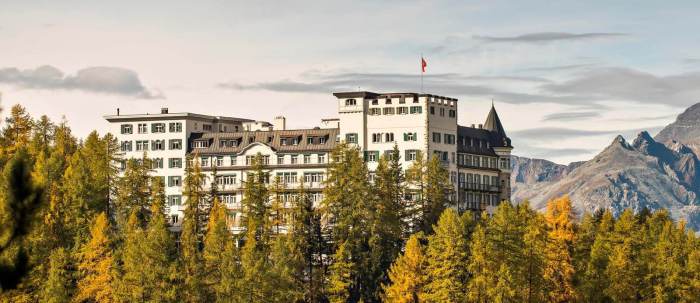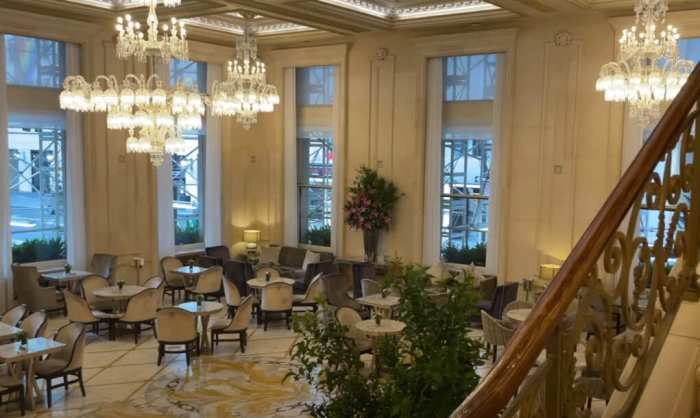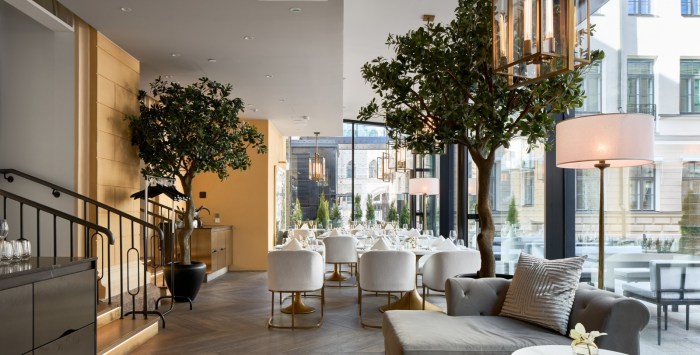Hotels With Historical Significance You Can Stay In
Hotels with Historical Significance You Can Stay In invite you to step back in time while enjoying modern comforts, creating unforgettable experiences steeped in rich narratives.
These accommodations not only provide a place to rest but also offer a glimpse into the past, showcasing unique architectural styles and captivating histories that enrich your travel experience. From tales of famous guests to events that shaped the local culture, staying in such hotels allows you to connect with history in a way that is both immersive and enlightening.
Historical Hotels Overview
Staying in a hotel with historical significance offers travelers an immersive experience that goes beyond mere accommodation. These hotels serve as gateways to the past, allowing guests to connect with history through architecture, decor, and stories that have stood the test of time.Historical significance, in the context of hotels, refers to properties that have played a notable role in history, whether through their architecture, events that took place within their walls, or their contributions to local or national culture.
Key characteristics that bestow historical significance upon a hotel include age, preservation of original features, and the role it has played in significant events or movements. Many historical hotels retain their original architectural styles and furnishings, providing an authentic glimpse into the era they represent.
Key Characteristics of Historically Significant Hotels
Hotels of historical significance often share several notable characteristics that set them apart from modern establishments. Understanding these traits can enhance the appreciation of the unique experiences they offer.
- Architectural Style: Historically significant hotels often showcase distinctive architectural styles, such as Victorian, Art Deco, or Colonial, reflecting the design trends of their respective eras. These styles can include intricate woodwork, ornate ceilings, or grand staircases.
- Preservation of Original Features: Many hotels have been carefully restored to maintain original elements, from vintage furnishings to original signage, providing a genuine atmosphere that transports guests back in time.
- Historical Events: Some hotels have been the backdrop for important historical events, such as meetings of influential leaders, celebrations of significant milestones, or even moments of conflict, enriching the narrative of the hotel.
- Cultural Artifacts: Historically significant hotels often display art, photographs, and memorabilia that reflect the local heritage, offering guests a deeper understanding of the area’s history.
- Famous Guests: Many historical hotels have hosted notable figures, from presidents to celebrities, adding a layer of intrigue to the guest experience and enhancing the hotel’s allure.
The appeal of staying in a hotel with historical significance lies in the opportunity to walk in the footsteps of those who came before. Guests often find themselves surrounded by stories and legacies that resonate with the fabric of history, making their stay not just a night away from home, but a journey into the past. Whether it’s sipping tea in a parlor that once hosted dignitaries or resting in a room where famous authors found inspiration, the experience is enriched by the weight of history, creating lasting memories.
Notable Hotels Worldwide
Staying in a hotel with historical significance offers more than just a place to rest; it provides a unique opportunity to step back in time and experience the stories, architecture, and cultures that have shaped our world. Many hotels around the globe have preserved their rich histories, allowing guests to immerse themselves in the past while enjoying modern amenities. Below, we explore five notable hotels renowned for their historical significance, each with its own captivating story and architectural style.
Notable Historical Hotels
The following hotels not only offer luxurious accommodations but also boast fascinating histories and architectural styles that reflect the eras they represent.
- The Savoy Hotel, London
-Opened in 1889, The Savoy was the first hotel in Britain to have electric lighting and a bathroom in every room. Its Art Deco and Edwardian style has hosted royalty, celebrities, and dignitaries. An interesting anecdote involves the legendary British actor Charlie Chaplin, who frequented The Savoy and had his own private suite named after him. The hotel’s illustrious past is reflected in its stunning Thames River views and elegant marble interiors. - Raffles Hotel, Singapore
-Established in 1887, Raffles Hotel is a stunning example of colonial architecture with its iconic white façade and lush gardens. Known as the birthplace of the Singapore Sling cocktail, it has welcomed many famous guests, including Rudyard Kipling and Charlie Chaplin. The hotel has a rich history as a social hub in the region and continues to retain its historical charm through its beautifully restored suites and public spaces. - The Stanley Hotel, Colorado
-Built in 1909 and famously known as the inspiration for Stephen King’s “The Shining,” The Stanley Hotel features a mix of Georgian and Colonial Revival architecture. Guests often share stories of unexplained phenomena, contributing to its reputation as one of the most haunted hotels in America. The hotel’s history is deeply intertwined with the natural beauty of the Rocky Mountains, making it a unique destination for both thrill-seekers and history buffs. - Hotel Del Coronado, California
-This beachside hotel, constructed in 1888, is a stunning example of Victorian architecture and has been designated a National Historic Landmark. Its iconic red-roofed design and picturesque beachfront have attracted numerous celebrities, including Marilyn Monroe. The hotel’s intriguing tales include the mysterious disappearance of a bride in the late 1800s, which adds to its historical allure. - Hotel Ritz, Paris
-Opened in 1898, Hotel Ritz is synonymous with luxury and elegance, showcasing a blend of French Renaissance and modern design. It was a favorite haunt of artists like Coco Chanel and Ernest Hemingway. The hotel played a significant role during World War II, serving as a base for both the German army and the Allies. Its opulent interiors, including the famous Hemingway Bar, provide a glimpse into the glamour of Parisian life in the early 20th century.
Cultural Impact of Historical Hotels
Historical hotels are more than just places to rest; they serve as vibrant links to the past and play a significant role in enriching local culture and tourism. These hotels encapsulate the essence of the eras they represent, providing guests with a unique opportunity to immerse themselves in the history and heritage of a location. By preserving architectural styles, historic decor, and stories from the past, historical hotels become cultural landmarks that attract tourists and serve as hubs of local activity.Staying in a historical hotel can greatly enhance cultural appreciation for guests.
These establishments often offer insights into the customs and traditions of the region, encouraging visitors to engage with the local community. Many historical hotels host events, exhibitions, and festivals that celebrate the culture and history of the area, creating an interactive experience for guests. This connection promotes a deeper understanding of the local way of life and fosters respect for the cultural nuances that define a region.
Events and Festivals at Historical Hotels
Historical hotels frequently serve as venues for various events and festivals, showcasing local traditions and contributing to the cultural tapestry of the area. These events not only attract tourists but also engage local residents, creating a sense of community and shared heritage. Below are examples of notable events that often take place at historical hotels:
- Heritage Week Celebrations: Many historical hotels participate in heritage week activities, which may include guided tours, reenactments, and historical lectures that illuminate the past.
- Culinary Festivals: Some hotels host food festivals featuring traditional dishes that reflect the local cuisine, allowing guests to experience the taste of the region while learning about its culinary history.
- Art Exhibitions: Historical hotels often collaborate with local artists to display artwork that resonates with the history and culture of the area, providing guests with a chance to appreciate local talent.
- Seasonal Celebrations: Hotels may organize seasonal events, such as Christmas markets or Halloween festivities, that incorporate local customs and traditions, enhancing the holiday experience for guests.
The role of historical hotels in hosting these events is pivotal in preserving local culture. They serve as a backdrop for storytelling and cultural expression, bridging the gap between past and present. Guests depart with not just memories but also a greater appreciation for the heritage they experienced.
“Historical hotels create a living narrative where past traditions and contemporary culture intersect, fostering a unique travel experience.”
Preservation of Historical Hotels

Source: phgcdn.com
Preserving historical hotels requires a delicate balance between maintaining their original charm and adapting them to meet modern standards. This effort is essential not only for heritage conservation but also for providing unique experiences for guests.The challenges faced in preserving historical hotels often stem from their age, which can come with structural issues, outdated facilities, and the need for compliance with contemporary safety regulations.
Furthermore, funding can be a significant hurdle, as restoration projects may require substantial investment to address these concerns while respecting the property’s original architecture and historical significance. Often, the owners must navigate complex regulations and guidelines that govern historical preservation, adding to the difficulty of such projects.
Successful Restoration Projects
Numerous historical hotels around the world have undergone successful restoration projects, demonstrating that thoughtful investment in preservation can yield both aesthetic and financial rewards. One notable example is the Hotel Del Coronado in California. This iconic Victorian beachfront hotel saw extensive renovations in the 2000s, which restored its original grandeur without compromising modern amenities. The restoration maintained the hotel’s distinctive wooden structure and vibrant red roof while integrating updated technology, making it a prime example of successful historical preservation.Another successful project is the Fairmont Banff Springs in Canada.
Originally opened in 1888, this hotel underwent a major restoration effort in the early 2000s that focused on preserving its stunning brick and stone architecture. The project emphasized the importance of keeping the historical character of the building intact while enhancing guest experience through modern conveniences.
Best Practices for Preserving Integrity
Implementing best practices in the preservation of historical hotels ensures that their unique qualities are maintained while adapting to contemporary needs. Here are key strategies to consider:Preservation should always begin with thorough research on the hotel’s history and architectural significance. Understanding the original design and purpose will guide restoration efforts effectively.Utilizing skilled craftsmen experienced in historical restoration is crucial. Such professionals can ensure that repairs and renovations are in line with the original building techniques and materials.Engaging with local preservation societies and historical organizations can provide insights and support.
These groups often have valuable resources and knowledge regarding preservation standards and practices.Maintaining open communication with guests about the historical significance of the hotel can foster a deeper appreciation for its heritage. Informative signage and guided tours can enlighten visitors on the hotel’s history.Lastly, it’s important to implement sustainable practices that respect both the environment and the historical fabric of the building.
This can include using eco-friendly materials and energy-efficient systems that do not detract from the hotel’s historic image.By adhering to these practices, owners can uphold the character of historical hotels while ensuring they remain viable and appealing to future generations.
Unique Experiences Offered

Source: doyouknowtravel.com
Staying in a historical hotel is not just about a comfortable bed and a good view; it’s about immersing yourself in the stories that echo through its walls. These unique experiences and activities at historical hotels allow guests to connect deeply with the locale’s heritage while enjoying luxurious comforts. From themed rooms that take you back in time to culinary offerings that reflect the region’s traditions, each stay promises something remarkable.
Unique Activities and Experiences
Many historical hotels provide distinct activities that enhance the guest experience, offering a deeper understanding of the hotel’s significance and local culture. Here are some activities you might find at various historical hotels:
- Guided History Tours: Many hotels offer guided tours that delve into their storied past, allowing guests to explore architectural features, artifacts, and legendary tales.
- Themed Events: Seasonal themed events, including Victorian tea parties or Roaring Twenties soirées, provide guests with an immersive experience that reflects the hotel’s era.
- Workshops: Cooking classes featuring recipes from the hotel’s historical kitchen or arts and crafts workshops inspired by local artisans can be a unique way to engage with history.
- Ghost Tours: For those intrigued by the supernatural, some hotels offer ghost tours that share spooky stories associated with the property, adding a thrill to the experience.
- Wellness Retreats: Certain historical hotels provide wellness retreats inspired by traditional practices, focusing on relaxation techniques and health treatments that have stood the test of time.
Themed Rooms and Suites
Themed rooms or suites in historical hotels often draw inspiration from the hotel’s rich history, offering guests a unique ambiance that reflects different eras or significant events. These rooms may include:
- Colonial Suites: Decorated with period-appropriate furnishings and artwork, these suites transport guests to the colonial era, complete with four-poster beds and vintage decor.
- Victorian Rooms: Featuring ornate wallpaper, antique furniture, and lavish textiles, these rooms embody the elegance of the Victorian period.
- Art Deco Suites: With bold colors, geometric patterns, and classic Art Deco furnishings, these suites reflect the opulence of the 1920s.
- Historical Figures’ Rooms: Some hotels celebrate notable historical figures associated with their history by designing rooms inspired by their life and times, complete with memorabilia.
Culinary Offerings Reflecting History
Dining at a historical hotel often provides an opportunity to taste dishes rooted in local traditions, showcasing the region’s culinary history. Many hotels partner with local chefs or historians to create menus that pay homage to the area’s heritage. Examples include:
- Farm-to-Table Dining: Many historical hotels emphasize local produce, offering dishes that celebrate the culinary traditions of the region, such as hearty stews or seasonal salads.
- Historical Recipes: Some hotels recreate dishes from their founding era, allowing guests to savor tastes that date back generations.
- Themed Afternoon Teas: Inspired by historical practices, afternoon teas may feature traditional scones and pastries that reflect the hotel’s history or regional delicacies.
- Wine Pairing Events: With the focus on local vineyards, some hotels offer wine-pairing dinners that highlight regional varietals and the historical significance of winemaking in the area.
Guest Reviews and Experiences
Staying in a historical hotel is often more than just a night’s accommodation; it’s an immersive journey into the past. Guests frequently share their rich experiences, noting the unique ambiance and stories that surround these age-old establishments. From centuries-old architecture to tales of famous guests, each hotel offers a distinct flavor that guests find enchanting.The influence of history on guest experiences is palpable and often reflected in their reviews.
Many travelers express feelings of nostalgia and connection to the past, which enhances their overall satisfaction. A common theme among testimonials is the appreciation for the character and charm that modern hotels lack. Guests often recount how the history of a hotel enhances their stay, making it memorable and unique.
Sentiments Expressed in Reviews
The reviews of historical hotels highlight several recurring sentiments, showcasing the emotional and experiential aspects of staying in these unique accommodations. Guests frequently share their thoughts through various digital platforms, painting a vivid picture of what it’s like to stay in a space steeped in history. Here are some prominent themes found in guest reviews:
-
“The moment I walked into the lobby, I was transported back in time. The decor and architecture were breathtaking.”
-
“The stories shared by the staff about the hotel’s past added a wonderful layer to my stay.”
-
“I loved how each room had its unique personality that spoke of different eras.”
-
“Staying in a hotel with a rich history made my trip feel special and significant.”
-
“The historical tours offered by the hotel were informative and added so much value to my experience.”
These sentiments underscore the allure of historical hotels, where the past comes alive and enriches guests’ experiences. The authenticity of the hotel’s history resonates with many, allowing them to appreciate not only the luxury of their stay but also the stories that have unfolded within those walls.In summary, guest reviews reveal that the history of a hotel contributes significantly to their experiences.
The combination of unique architecture, fascinating narratives, and personalized service creates an atmosphere that’s both inviting and memorable. The emotional connection forged through these historical elements often results in a higher level of satisfaction and a desire to return.
Tips for Choosing a Historical Hotel
When planning a stay at a historical hotel, the experience goes beyond just a place to sleep; it’s about immersing yourself in the stories and charm of the past. Selecting a hotel with historical significance requires careful consideration to ensure that it meets your expectations and enhances your travel experience. Here are some essential tips to guide you in making the right choice.Understanding the historical context of the hotel can significantly enhance your stay.
It not only adds depth to your experience but also helps to align your interests with the offerings of the hotel. Before you decide, here are some points to consider:
Checklist for Selecting a Historical Hotel
When choosing a historical hotel, having a checklist can ensure you don’t overlook any important factors. Here are key points to evaluate:
- Historical Significance: Research the hotel’s history and its role in local or national events.
- Architecture: Look for unique architectural features that reflect the era or style of the period when it was built.
- Location: Consider the proximity to historical sites, museums, and cultural landmarks.
- Amenities: Check for modern comforts that may complement the historical experience, such as Wi-Fi, air conditioning, and dining options.
- Guest Reviews: Read testimonials from previous guests to gauge their experiences and satisfaction levels.
Researching a Hotel’s Historical Background
Before booking your stay, it’s beneficial to delve into the hotel’s historical background. This can enhance your appreciation of the place. Here are some effective ways to research:
- Official Website: Check the hotel’s website for a dedicated section on its history, including photographs and anecdotes.
- Travel Blogs: Read travel blogs and articles that provide personal insights and historical context about the hotel.
- Local Libraries or Archives: Investigate any local resources that provide historical data or documents about the hotel.
- Social Media: Explore reviews and posts on social platforms where travelers share their experiences and historical facts.
Comparison of Amenities and Features of Popular Historical Hotels
To help you make an informed decision, comparing amenities and features across various historical hotels can be beneficial. Below is a table highlighting notable attributes of popular historical hotels:
| Hotel Name | Location | Year Established | Notable Features | Average Night Rate |
|---|---|---|---|---|
| The Fairmont Banff Springs | Banff, Canada | 1888 | Castle-like architecture, mountain views, hot springs | $450 |
| The Ritz Paris | Paris, France | 1898 | Luxury suites, famous bar, historical significance | $1,200 |
| Hotel del Coronado | San Diego, USA | 1888 | Victorian architecture, beach access, ghost stories | $650 |
| Château Frontenac | Quebec City, Canada | 1893 | Historic landmark, stunning views, luxury dining | $500 |
Future of Historical Hotels
As the hospitality industry continues to evolve, historical hotels are adapting to emerging trends while facing unique challenges. This section explores how these iconic establishments are navigating the modern travel landscape, identifying potential threats, and embracing innovations to enhance guest experiences.
Emerging Trends in Hospitality
Historical hotels are increasingly embracing trends that align with travelers’ preferences for authenticity and sustainability. The rise in demand for unique, localized experiences is prompting many historical hotels to focus on their rich narratives and cultural significance. Additionally, there is a growing emphasis on eco-friendly practices, with hotels incorporating sustainable materials and energy-efficient technologies into their renovations.
- Authenticity in Experience: Many guests seek immersive experiences that reflect the local culture and history. Historical hotels are curating unique local events, guided tours, and collaborations with local artisans to enhance authenticity.
- Sustainability Initiatives: As travelers become more environmentally conscious, historical hotels are adopting sustainable practices, including using renewable energy sources, implementing waste reduction strategies, and sourcing food locally.
- Digital Integration: The incorporation of technology is essential for enhancing the guest experience. Historical hotels are utilizing mobile check-ins, virtual tours, and smart room technologies to meet modern demands while maintaining their unique character.
Potential Threats to Historical Hotels
While historical hotels offer unique charm and character, they face several challenges in the competitive hospitality market. Changes in traveler preferences and external factors pose potential threats to their viability.
- Competition from Modern Accommodations: With the rise of contemporary hotels and alternative lodging options like vacation rentals, historical hotels must differentiate themselves to attract guests.
- Economic Pressures: Economic downturns can significantly impact travel and tourism, making it challenging for historical hotels to maintain their operations and preservation efforts.
- Changing Consumer Preferences: Younger generations may prioritize modern amenities and convenience over historical charm, which could affect the appeal of traditional properties.
Innovations Enhancing Historical Experiences
To stay relevant, historical hotels are leveraging innovations that enhance guest experiences while preserving their unique histories. These innovations not only attract guests but also enrich their stays.
- Augmented Reality Experiences: Some hotels are incorporating augmented reality to bring their storied pasts to life. Guests can use their smartphones to view historical events unfold around them or learn about the significance of their surroundings.
- Personalized Guest Services: Utilizing data analytics, hotels can offer tailored recommendations and experiences based on guest preferences. This could include personalized itineraries or curated historical tours.
- Interactive Historical Displays: Many historical hotels are integrating interactive exhibits that educate guests about the property’s history, featuring artifacts, photographs, and narratives that tell the story of the hotel and its surroundings.
“Preserving the past while embracing the future is the key to the success of historical hotels in an evolving market.”
Final Summary

Source: phgcdn.com
In conclusion, choosing to stay in hotels with historical significance enhances your journey by offering not just a room, but a doorway into the past, where every corner has a story to tell. By embracing these unique accommodations, you contribute to their preservation and enjoy a remarkable blend of history and hospitality that few experiences can match.
FAQ Section
What defines a hotel as historically significant?
A hotel is considered historically significant if it has unique architectural features, is associated with important historical events or figures, or contributes to the cultural heritage of its location.
Are historical hotels more expensive than modern hotels?
Prices can vary widely; some historical hotels are premium experiences due to their unique offerings, while others may be competitively priced compared to modern hotels.
Can I find modern amenities in historical hotels?
Many historical hotels offer modern amenities while preserving their original charm, providing guests with comfort and convenience alongside historical features.
What should I consider when booking a historical hotel?
Consider the hotel’s historical background, guest reviews, preservation efforts, and the authenticity of the experiences offered to ensure a fulfilling stay.
Do historical hotels host events or festivals?
Yes, many historical hotels host events or festivals that celebrate their heritage, such as themed dinners, historical tours, or cultural festivals that attract both guests and locals.









